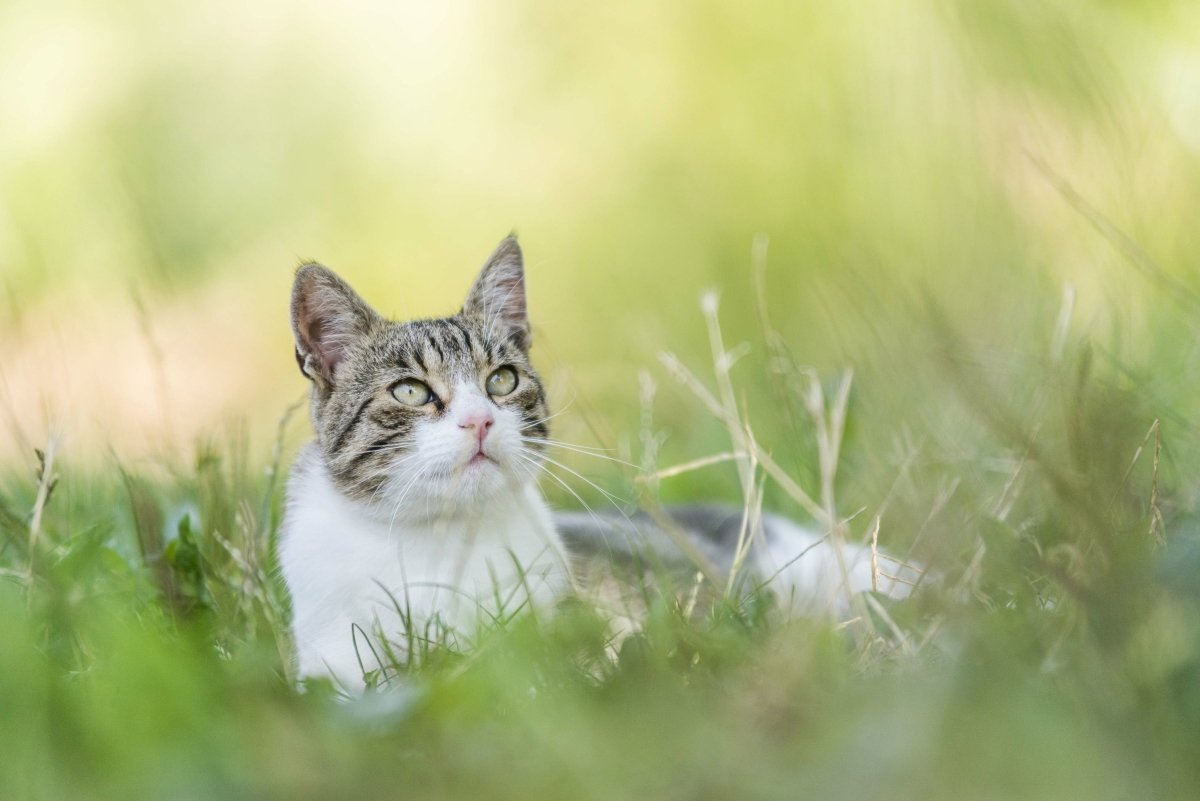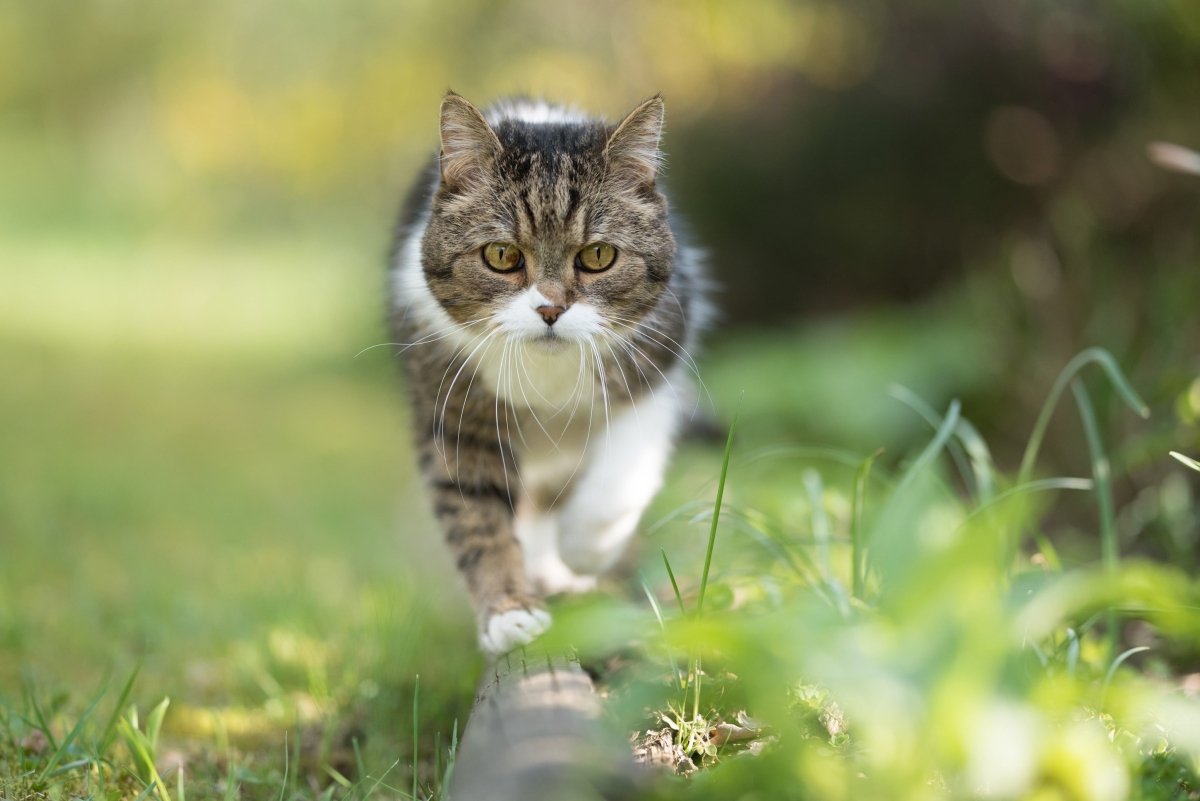Cats vomit: What you should do
Vomiting in cats is nothing unusual at first. In many cases, it is simply hair or cat grass if the animal has eaten too much of it. Your cat will vomit if it has swallowed too much fur. As these animals are very clean and clean themselves extensively, this is inevitable and fortunately completely harmless. However, if your cat is constantly vomiting, this should ring alarm bells. The same applies if your cat is vomiting foam or the sputum has a yellowish color. These could be symptoms that indicate something serious. Of course, you don't need to go straight to the vet in the first instance. However, as a cat owner you should now be more attentive. Observe the animal and try to provide sufficient fluids. AniForte also provides you with some causes and tips on the subject of vomiting in cats.
Cats vomit for various reasons
Basically, it is a protective mechanism of the body when your cat vomits. At this moment, the brain signals that something is wrong and does not belong in the stomach. The natural instinct kicks in. Cats vomit and get rid of the disturbing factor in this way. However, this does not always work straight away. It may also be that it is not an object that can be removed so easily by the cat vomiting. Cats usually vomit one to three times. Then the spook is over again. The situation is different if this reflex does not stop and the vomiting continues over a longer period of time. In this case, the animal loses too much fluid in a short period of time. Dehydration can be the result. Your cat will vomit constantly, weakening the body and its functions. The first signs that cats are vomiting are licking the floor or other objects and increased salivation. The animal may also withdraw to a quiet place. Classic retching noises and contractions of the abdomen also indicate that your cat is vomiting. Only seconds later, a gush of vomit comes out of the animal. This process is then repeated. After cats vomit, you as the owner should act quickly. It is not uncommon for animals to try to eat their vomit again. However, this could be important evidence of the cause of the retching. It is also important to know whether your cat is vomiting water or foam. The color also plays a decisive role. If the animal has swallowed a foreign body, this can also be checked when cats vomit.
These can be the causes of vomiting in cats
The most common cause of vomiting in cats is eating. Many house pets tend to gorge themselves and forget to chew. Predators gulp down their prey and rarely chew. This is normal behavior. The food or prey is then regurgitated in a quiet place and eaten again in peace. Eating too quickly will quickly fill the stomach. You should therefore offer your cat several small portions throughout the day. Your cat's natural reflex is to vomit. After one or two repetitions, however, the animal will feel better and in most cases your cat will be right back at the bowl. Another completely natural process is vomiting fur. Hair cannot be digested. However, it is swallowed during daily grooming and ends up in the stomach. A clump of hair forms here, which in most cases is disposed of by your cat vomiting. This is completely natural and you have absolutely nothing to worry about if you find such a tuft of fur. Tip: Elm bark is often used to make it easier for cats to "get rid" of hairballs, as larger hairballs can lead to stubborn blockages (up to and including intestinal obstruction), especially in long-haired cats. The same applies to the popular and well-known cat grass. This helps the four-legged friends in a natural way. For example, if they have an acidic stomach, they will eat the cat grass. This grass ensures that cats vomit and the natural balance in the stomach can be restored. The animals help themselves by throwing up and bring everything back into balance. One thing that is also easy and quick to treat is a change of food. Cats vomit if the composition of the ingredients in their cat food is not ideal. If the animal cannot tolerate the food, the brain cannot trigger a reflex. There are numerous food supplements available to help your cats with digestion. Elm bark powder, for example, helps with both vomiting and diarrhea. You can use Indian psyllium seeds to promote healthy digestion and intestinal function in your cat. As you can see, vomiting in cats is not always harmful, but in many cases is completely natural and can be seen as protection for the animal.
Cats vomit: You should act urgently here
However, there are also situations in which cats vomit that are not harmless. As a cat owner, you should always keep a close eye on why your cat is vomiting and what exactly is causing it so that you can take action. If your cats vomit, you should therefore observe them closely and document any unnatural behavior. In an emergency, you can report your observations to the vet and help to alleviate the symptoms. You can also use products that are good for the stomach and intestines if your cats vomit. If your cats vomit because they have swallowed a foreign object, this must be removed from the stomach. As a cat owner, you must therefore pay close attention to whether your pet can do it on its own or whether professional help from the vet is required. Depending on what kind of foreign body it is, it can otherwise lead to injuries to the stomach or intestines, poisoning or even blockages. A worm infestation can also cause cats to vomit. However, if this is the cause, then the infestation is very advanced. Worming has only rarely, if ever, been carried out on this animal. In this case too, a doctor is the only way to rid the animal of the parasites. By the way: if you have given your cat a worming treatment, it is helpful to add "WermiX powder for cats4in1 Complete CatTopinPurVetnewsletter.



